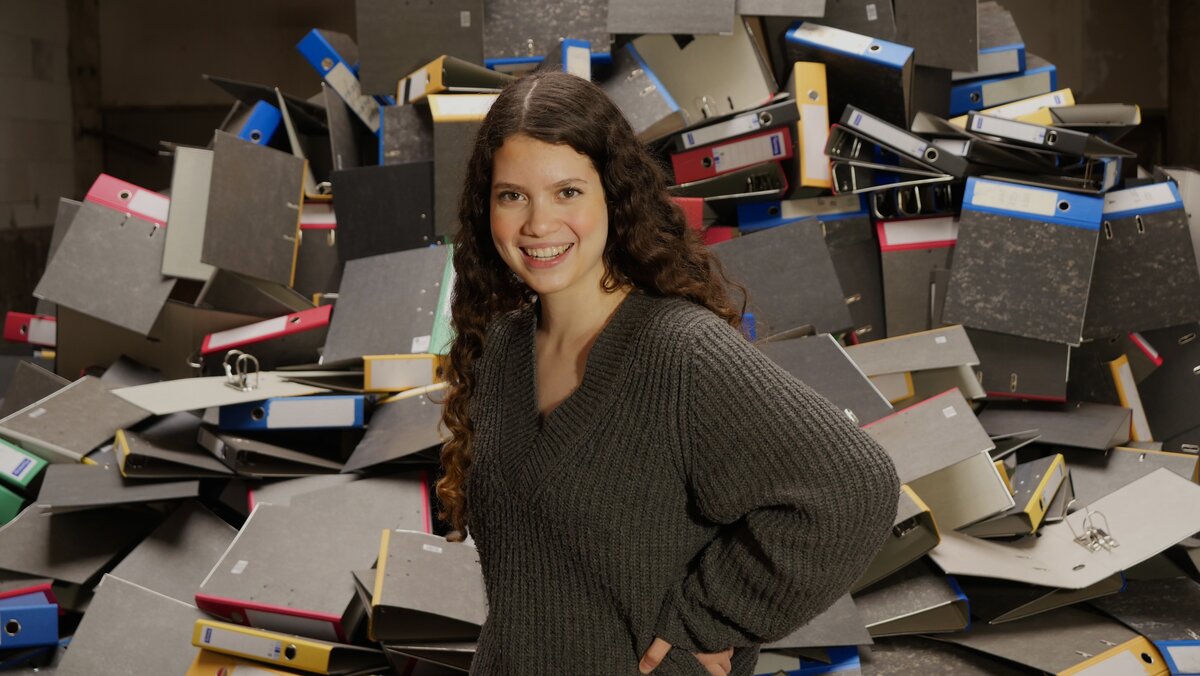At only 19 years old, WHU student and Münster native Nour Idelbi (BSc 2026) has already founded two start-ups—and two successful start-ups at that.
Nour Idelbi is the developer of safety app SafeSpace. She is also one of the brains behind soft drink brand pop’it, which she plans to bring to supermarket shelves soon. Idelbi spoke with us about what drives her, the challenges she faces as a young female entrepreneur, and the roll WHU is playing along the way.
Nour, you came up with the idea for SafeSpace during your school days. How did that idea come about?
It was very clear to me, even as a teenager working in my hometown’s youth council (Jugendrat) that many people, women in particular, do not feel safe walking home at night. I myself have often had that uneasy feeling being out after dark. I first came up with the concept for SafeSpace when I was in the tenth grade after attending a school workshop on entrepreneurship. What followed was a long yet thrilling journey—competitions, building community support, and, eventually, establishing the company. But what really drove the project’s development was coming to study at WHU. It was there that I found a network and was given access to the tools I needed to professionalize SafeSpace.
How does the app work exactly?
SafeSpace uses the traffic light system. Users can tag where they are as either a red, yellow, or green zone depending on how safe they feel there. A number of things can happen depending on that status. For example, the app can send out automatic messages to the user’s emergency contacts. One new feature is the fake call, which users can activate when they find themselves in an uncomfortable situation and no longer feel safe. And then we have our “community calls,” a feature I am particularly proud of, and which was born of our users’ direct feedback. It allows users to anonymously and quickly speak with others whenever they’re feeling uncomfortable or lonely. User feedback is absolutely key. We’ve been able to drum up support for our app through TikTok and Instagram, and we want our users to feel included in the app’s development. In fact, several of the app’s features would not have come about without this direct dialogue with our users. By the end of the year, we want to have 100,000 active users, which we feel is realistic given that we already clinched 10,000 users in our first week of testing. We are also working on a sustainable monetization strategy, partially via corporate partnerships.
You’ve founded another company alongside SafeSpace. Could you tell us a little about what that entails?
Maximilian Schulz, another WHU alum, and I got pop’it up and running. Pop’it is a prebiotic, sugarless soft drink with a taste that stacks up to conventional sodas. Prebiotic drinks have already found success in the United States but have gone largely unexplored in Germany. Our idea was born out of our shared interest in innovative food and health trends, and some of the methods I learned here at WHU, such as fast prototyping and early market testing, were extremely helpful. In a few months, we’ll be launching operations via Flaschenpost and a few select supermarkets. After the launch, we want to scale the business quickly and be active nationwide. My overarching goal, as always, is to use technology and entrepreneurship to have a positive effect on society.
What role is WHU playing in your entrepreneurial journey?
An enormous role. Along the way, I’ve gained more than just business sense, namely I’ve gained a strong network: Professors that, when they advise me, meet me where I am. Classmates and alumni who have opened doors for me. That’s all worth more than its weight in gold. I’m particularly inspired by the open exchange with other entrepreneurial thinkers at WHU. Topics surrounding technology are a core part of the everyday here, which greatly helps me in realizing my digital business models. I’ve found mentors here who push me, who are my advocates, and who let me grow as an entrepreneur.
You are active in promoting female entrepreneurship. Why is that?
In Germany, many more men are entrepreneurs than are women. And generally speaking, it’s not down to a lack of talent; it’s due to a lack of visibility, a lack of role models, and all the uncertainties. I’m convinced all women need to make their ideas reality is just a little more encouragement. Studies show that women in particular benefit from a hands-on business education that gets them in on the ground floor. That has been my own experience, and that is why I try to motivate other young women to take that leap of faith toward self-employment. WHU is the ideal place to do so.
Thanks for chatting with us! We wish you nothing but success for your endeavors.

